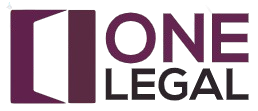Hire Experienced Distributed Ledger Technology (DLT) Solutions Experts
If your business uses DLT or you are considering DLT solutions, you need legal assistance from consultants and attorneys experienced in DLT matters.
From 2017 to 2018, distributed ledger technology and virtual currency company gained popularity in many industries. The technology was being used to launch business ideas and offer access to global markets. However, it wasn’t long before federal authorities focused on the technology, the digital asset industry, and its users.
Increasing acceptance and reliance on DLT by businesses made federal agencies incredibly suspicious of the technology, which wasn’t very well understood. If you utilize DLT today or plan to use digital assets technology, it’s important to retain consultants and attorneys knowledgeable on the technology to analyze your compliance obligations.
At Blockchainlaywer.com, we offer DLT advice, federal investigation defense on DLT matters, help with regulatory compliance, and more. Retain us to limit your exposure to federal accusations and investigations and get guidance in the future.
What Is Distributed Ledger Technology?
DLT is the infrastructure that facilitates multi-access, multi-validation, and storage abilities across network systems. DLT can qualify as a database managed by multiple people across nodes (networks). DLT was brought about by Bitcoin. The technology eliminates reliance on centralized authorities.
DLT is a decentralized technology that enables secure transactions and information via cryptography. Utilizing the technology for business has advantages like increased transaction speed, volume, and data processing. DLT allows instantaneous transaction verification and unmatched cost-effectiveness for digital asset companies.
DLT has unmatched possibilities. However, it is important to differentiate the technology from other technology and what the DLT can do for businesses today.
DLT vs. Blockchain Technologies: Differences between DLT and Blockchain
Blockchain is a distributed ledger technology (DLT). However, not all DLTs qualify as blockchains.
What’s the difference between blockchain and DLT? The first and most important difference is that blockchain is just one type of DLT. Thus, all blockchains are DLTs, but not all DLTs are blockchains.
A blockchain is composed of multiple blocks connected to prior blocks – hence a blockchain. Distributed ledger technology doesn’t require chains to function. The technology isn’t structured in blocks but as a database spreading over various nodes.
Blocks in a blockchain form a sequence. Every time transactions are verified, or mining takes place, a transfer takes place to a blockchain systematically in the way it was processed, resulting in a sequence. DLT doesn’t need similar sequencing to connect each transaction with a prior one.
DLT also differs from blockchain since it doesn’t need proof-of-work consensus, unlike most blockchain. This makes DLT more scalable.
What’s more, blockchain technology utilizes some form of cryptocurrency/token and uses a lot of energy. DLT doesn’t have these challenges compared to when you integrate blockchain technology.
Similarities between DLT and Blockchain
Both technologies eliminate the need for third parties. Both DLT and blockchain are decentralized. They transfer power from banks and governments, among other centralized authorities, into the hands of individual users.
Both technologies are also increasingly used today by privately held companies, businesses, individuals, and governments. However, blockchain is more popular than DLT.
Centralized vs. Decentralized
From the above, we know that both blockchain and DLT are decentralized, and both technologies are perfect alternatives to centralized transactions. However, what is the differences between a centralized and decentralized system?
While centralized systems can store data in many locations, these locations usually connect to a main system (centralized system). Centralized systems were built to offer control and authority. They focus power on an individual entity such as a bank to control money supply. Governments are also perfect examples of centralized systems.
However, centralization has had its risks revolving around increased vulnerability to theft of intellectual property, fraud, and cyber-attacks. Decentralized systems were developed to solve these problems. The systems feature distributed ledgers which allow information to be shared across multiple computers.
Decentralized ledgers are immune to hacking, among other cyber risks faced by centralized systems. The information in decentralized networks spans multiple nodes. To hack a decentralized system, every node in every single location must be attacked instantaneously to successfully hack the system. This is virtually impossible.
Moreover, decentralized systems allow every person access, making all transactions transparent. A new transaction in capital markets is also recorded in seconds. Distributed ledgers allow peer-to-peer transactions minus the need for single entities such as banks to control the process. In fact, there’s no need for third parties in decentralized systems like distributed ledger technology.
Since users have ultimate control in decentralized systems, they can trust systems 100% to execute transactions with transparency and security. Users also have assurance that transactions can’t be modified, altered, or deleted as every transaction is immutable.
DLT for Business
As discussed above, distributed ledger technologies have enormous potential for business. DLT can transform how companies, individuals, institutions, and even governments conduct business and interact. Companies can streamline operations without worrying about transaction security and transparency.
Governments can use DLT for sensitive tasks like tax collection, intellectual property matters, and passport issuing, while individuals can use the technology to conduct transactions without relying on intermediaries like banks. The finance industry stands to derive major benefits from DLT. Since DLT enhances trust between parties without needing KYC or other procedures, transactions can be handled quickly.
DLT offers businesses unique advantages, including unmatched access to venture capital. Getting funding outside traditional centralized banking is a reality with DLT. Besides finance, DLT offers benefits to many other industries, from art to supply chain, manufacturing, energy sectors, and accounting. Other industries that can benefit include, but aren’t limited to manufacturing, art, supply chain, accounting, and energy sectors.
Expert Help on Distributed Ledger Problems
DLT has great potential in many areas, such as business. The technology can be utilized across many industries. Governments can also benefit from the technology. However, new technology resulting opportunities come with new challenges. One notable challenge with DLT is regulatory obligations.
Let’s face it – federal agencies, let alone governments don’t fully understand DLT and its applications. The fact that DLT eliminates intermediaries like banks and other traditional institutions in finance makes things worse. Traditional intermediaries in the past aren’t delighted to have their power eroded which explains why DLT and similar technologies face immense scrutiny.
It’s therefore important for companies to utilize this technology with care to avoid exposing themselves to increased federal scrutiny. It’s critical to ensure compliance with any applicable laws if your business utilizes DLT solutions.
At , our law firm has consultants and attorneys experienced in DLT solutions. We can offer DLT solutions and compliance advice. We can also defend you/your business in case of federal investigations relating to you using DLT, blockchain, or other decentralized technologies.
Contact us today. We have free consultations sessions that can address all your DLT concerns.



